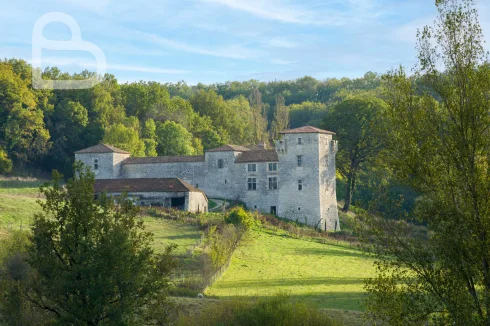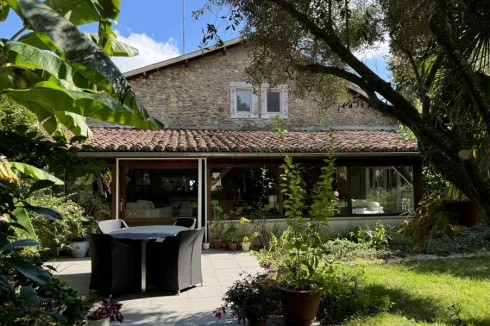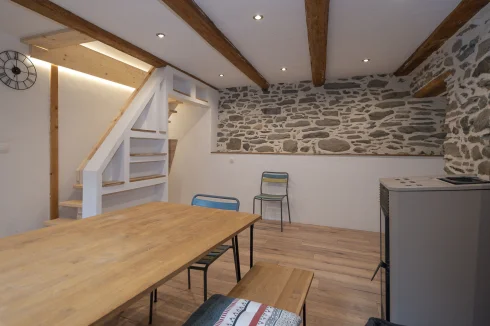French Property Sales by Candlelight
Tuesday 04 October 2016
The 'ventes à la bougie' are auction sales organised by the notaires, open to all, and potentially offering a substantial discount on the open market value of the properties offered for sale.
The term vente à la bougie (sale by candlelight) comes from the auction process, which is limited to the consumption of two candles, when the property goes to the highest bidder.
Publicity about these auctions - enchères immobilières - is restricted to announcements in specialized magazines, websites or in major newspapers. So finding out about them does require a fair degree of research and perseverance.
The announcements will indicate when it is possible to visit the property, which may be organised on a collective basis, at dates and times given on the advert. Increasingly, there are also interactive tours provided on the internet alongside the advert.
Contrary to the traditional sale process in France, in an auction sale there is no 10-day 'cooling-off' period for the purchases, and neither can there be a conditional clause in the sale contract concerning a mortgage.
Accordingly, when the candles go out, you need to ensure you have the funds in place to purchase the property.
The whole process can be rather intimidating, particularly for an international buyer, so our strong advice would be to attend one of these auctions as a visitor before you actually engage in an auction.
Sale Price
The starting price - mis a vente/prix - is set by the seller, following advice on the valuation from the notaire. In order to attract bidding, the publicised starting price is normally at least 30% lower than the open market value of the property.
However, this is not always the case, so do not necessarily assume either that this is a discounted price, or that the property will be sold for around this price. Very often they are sold for a far higher price.
Properties are also normally sold with a reserve price - prix de réserve - allowing the seller to rest assured that the property will not be sold at an unacceptable level. This reserve price will normally be in excess of the starting price, although it will remain confidential as between the notaire and the seller.
Auction Particulars
The auction particulars - cahier des charges - are available to potential buyer three weeks before the sale, either directly obtainable from the notaire or sometimes on the internet.
It contains all required information about the property for sale: condition, the building regulations, property survey reports, sale date, a summary of the costs borne by the buyer, the ability to outbid.
Costs
In addition to the sale price, the buyer needs to also budget for the legal costs - droits de mutation - of the transaction, normally around 7.5% of the sale price, as well as the costs of contributing to the publicity for the auction. These latter costs are sometime borne in part by the seller, but the auction particulars will provide information on this point.
Auction Process
In order to participate in the auction, a potential buyer must provide proper identity, either an official identity card or passport.
They must also deposit with the notaire a cheque for a minimum sum which will have been given in the auction particulars, up to 20% of the advertised starting price. Against this cheque the potential buyer will be given a number to be used in the bidding process.
At the beginning of the sale the notaire will light a candle - or a light - which will stay illuminated during the auction. Once silence starts to occur, the notaire will light two small candles one at a time, which will each be alight for around 30 seconds, effectively leaving a minute for new bidders to manifest themselves. Otherwise the property is awarded to the highest bidder.
Those who did not win can recover their deposit cheque at the end of the auction.
The winning bidder will be required to sign a report as confirmation of their purchase, after which they then have 45 days to pay the balance of the purchase price, as well as the transaction costs.
If the balance is not paid within 45 days the seller can arrange for a new auction, when the original bidder can be made liable for any difference in the initial and subsequent sale price, or be required to pay interest on the balance of the sale price.
Overbidding
During the 10 days following the auction sales are subject to an overbidding process - la surenchère - which allows anyone to make an offer of at least 10% higher than the winning bid.
To do so they must deposit a cheque of at least 30% of the reserve price and a new auction is organised!
The starting price of the property will be the 10% higher than the previously auction sale price.
Next Article: Guide to School Education in France
Thank you for showing an interest in our News section.
Our News section is no longer being published although our catalogue of articles remains in place.
If you found our News useful, please have a look at France Insider, our subscription based News service with in-depth analysis, or our authoritative Guides to France.
If you require advice and assistance with the purchase of French property and moving to France, then take a look at the France Insider Property Clinic.





